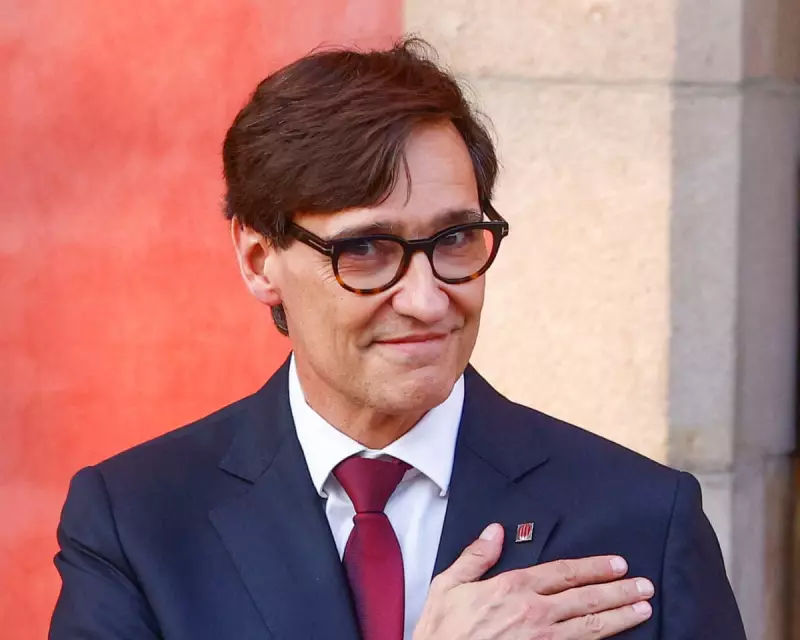
In a landmark interview that signals a dramatic shift in Catalonia's political direction, President Salvador Illa has outlined his ambitious vision for tackling the region's deepest divides while confronting the twin challenges of inequality and rising far-right influence.
A New Era of Pragmatic Governance
The Socialist leader, who made history in May by becoming the first non-separatist to lead Catalonia's government in over a decade, is pursuing what he calls a "politics of coexistence" that seeks to move beyond the bitter independence debate that has dominated regional politics for years.
"My priority is to improve people's lives," Illa stated emphatically during our exclusive conversation in Barcelona. "We've spent too many years focused on issues that, while important, have distracted from the daily concerns of Catalans: healthcare, education, and economic opportunity."
Confronting the Far-Right Challenge
The President didn't shy away from addressing the uncomfortable reality of growing far-right influence, both in Catalonia and across Spain. "When politics becomes polarised and problems go unsolved, extremism finds fertile ground," he observed, referencing the recent gains made by the far-right Vox party.
His solution? A relentless focus on practical governance and social justice. "The best vaccine against extremism is effective government that delivers real improvements for ordinary people," Illa asserted.
Rebuilding Bridges with Madrid
Perhaps most significantly, Illa described a "new chapter" in relations with Spain's central government, marking a stark contrast to the confrontational approach of his separatist predecessors. While acknowledging ongoing disagreements, he emphasised a commitment to "dialogue and cooperation" on everything from infrastructure investment to fiscal policy.
"We have demonstrated that different political forces can work together constructively," he said, pointing to his government's diverse parliamentary support that includes both left-wing and right-wing parties.
The Inequality Agenda
At the heart of Illa's programme lies an ambitious social agenda targeting Catalonia's persistent inequalities. He highlighted several key priorities:
- Expanding access to affordable housing in major urban centres
- Strengthening public healthcare after the pandemic strain
- Investing in vocational training and education
- Supporting small businesses and local economies
"Economic recovery cannot leave anyone behind," Illa insisted. "The dignity of work, the right to healthcare, the opportunity for quality education – these are what truly matter to people."
A Delicate Balancing Act
Navigating Catalonia's complex political landscape requires considerable skill. Illa leads a minority government that depends on support from both the pro-independence left and the conservative Popular Party – an unprecedented arrangement that some predicted would be unworkable.
Yet, against the odds, his administration has begun to make progress. "We're showing that moderate, centre-left politics can build bridges across traditional divides," he said with visible conviction.
As Catalonia watches this political experiment unfold, all eyes remain on whether Illa's pragmatic approach can deliver the stability and progress that has eluded the region for so long. The stakes couldn't be higher – not just for Catalonia, but for the future of Spanish democracy itself.





